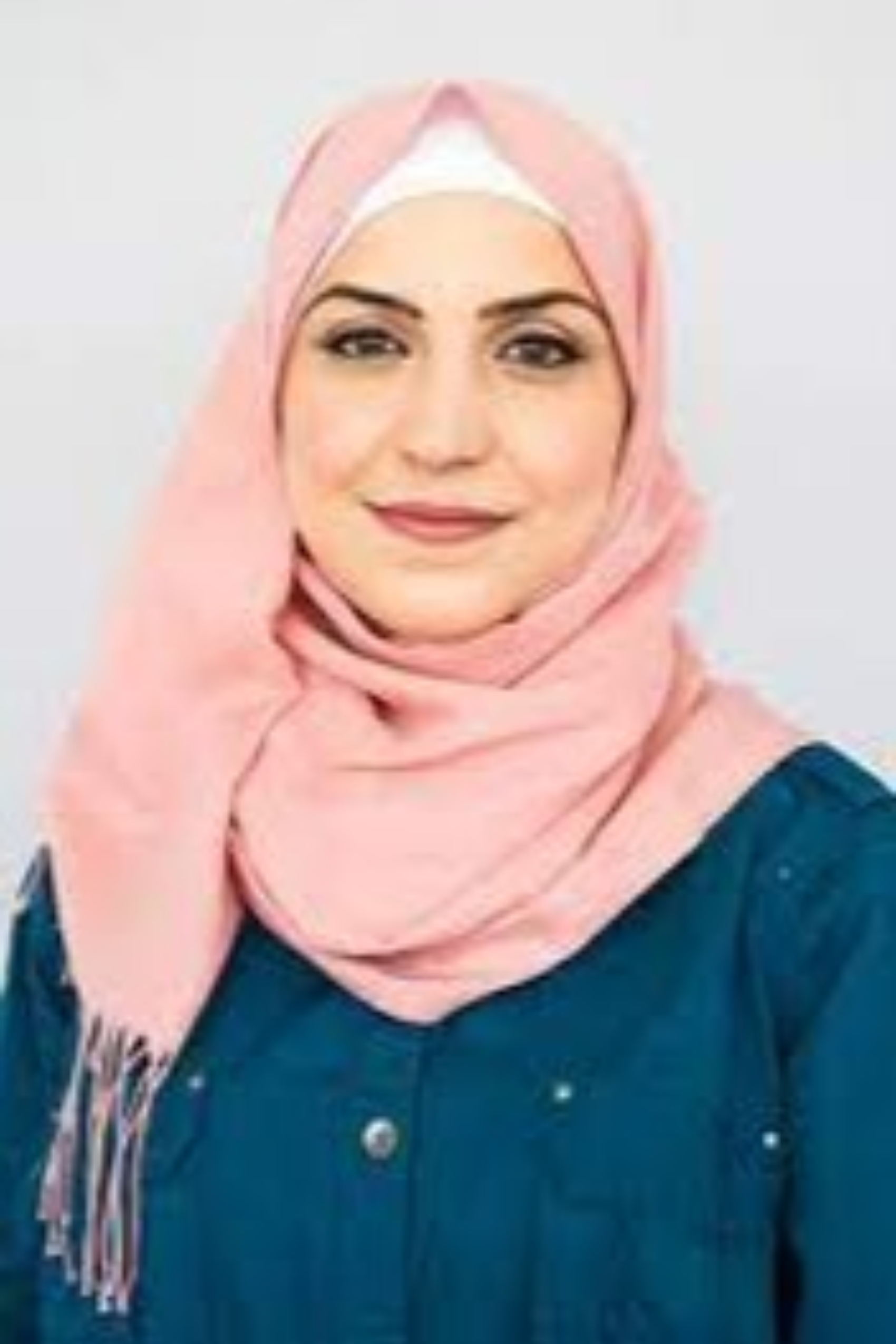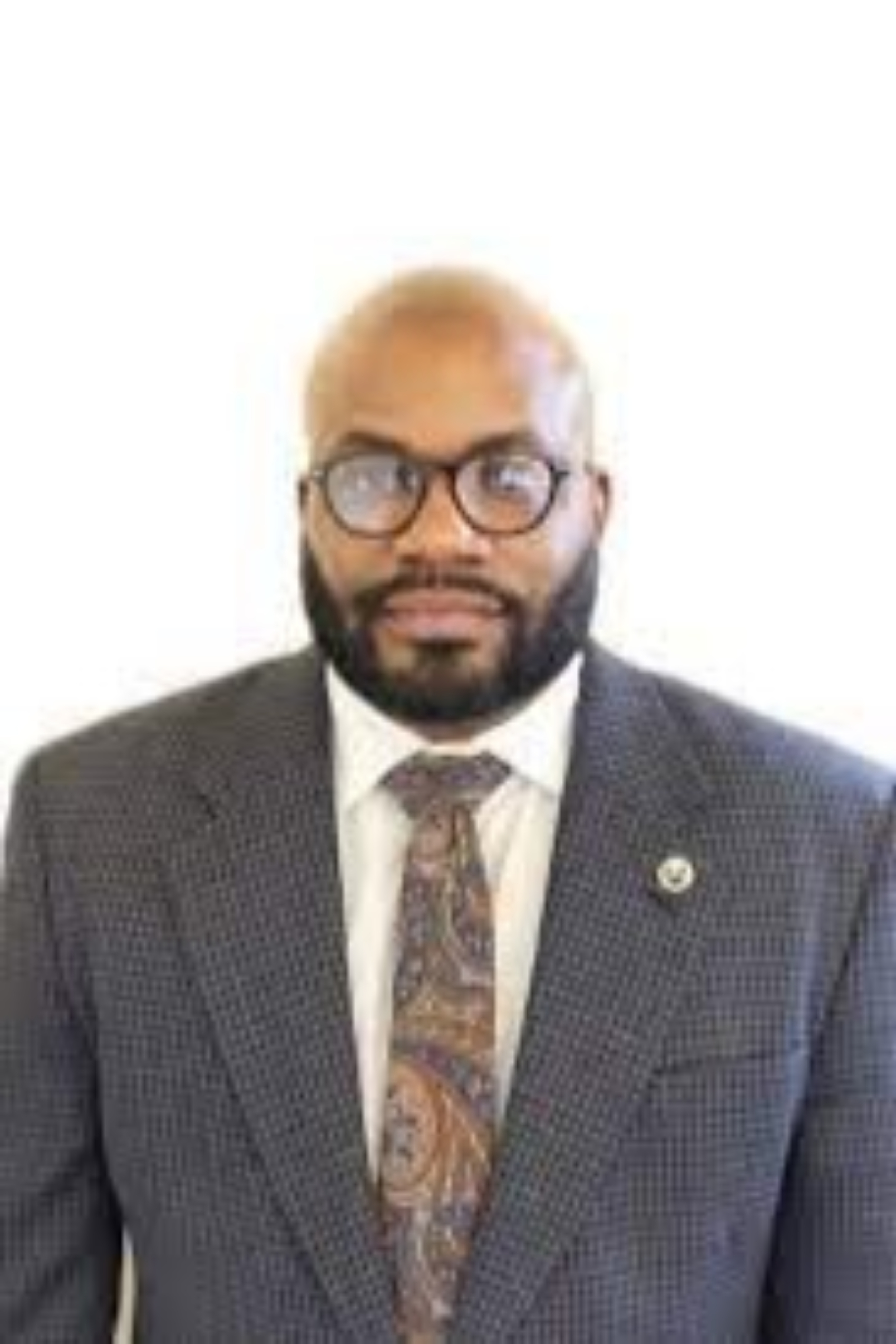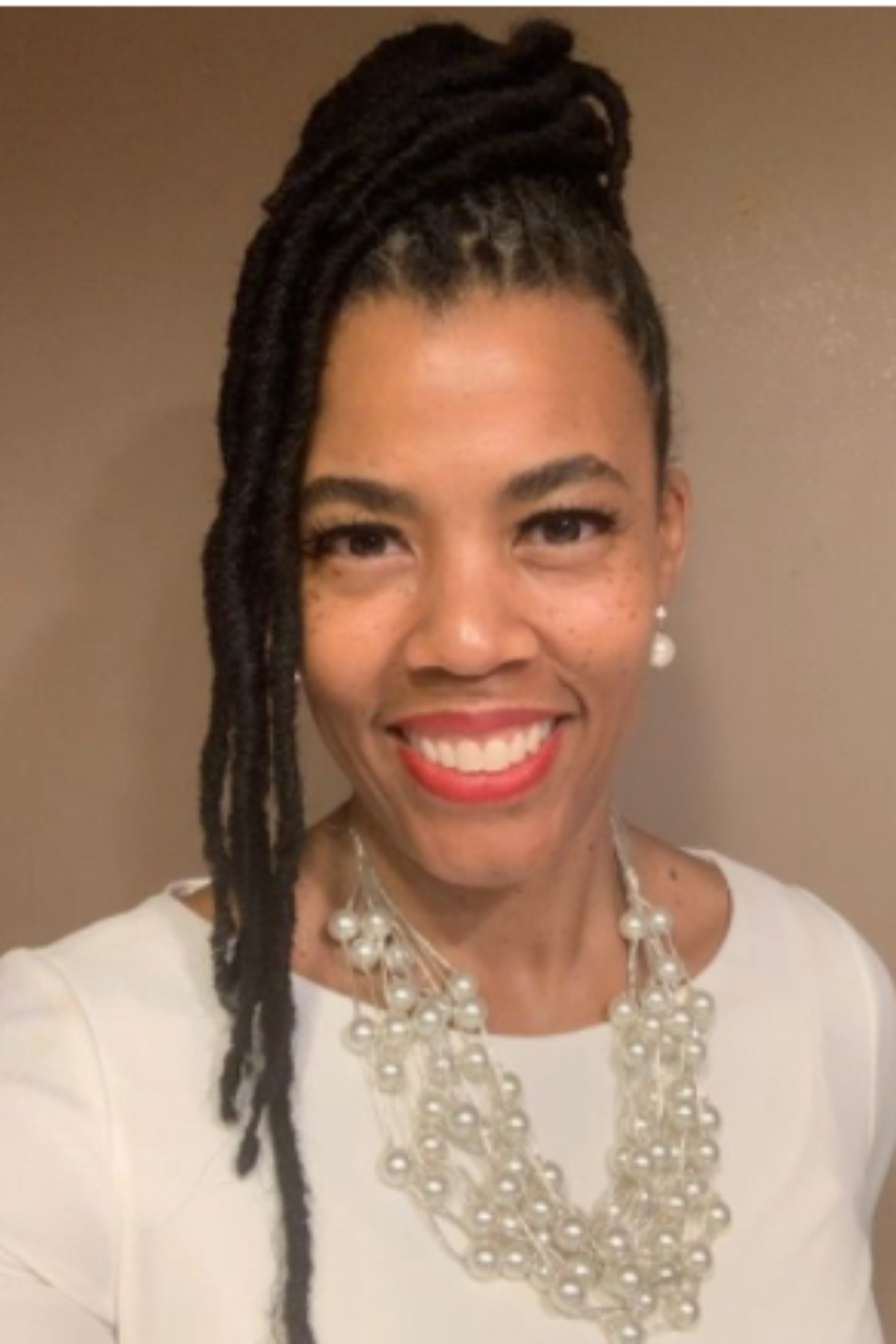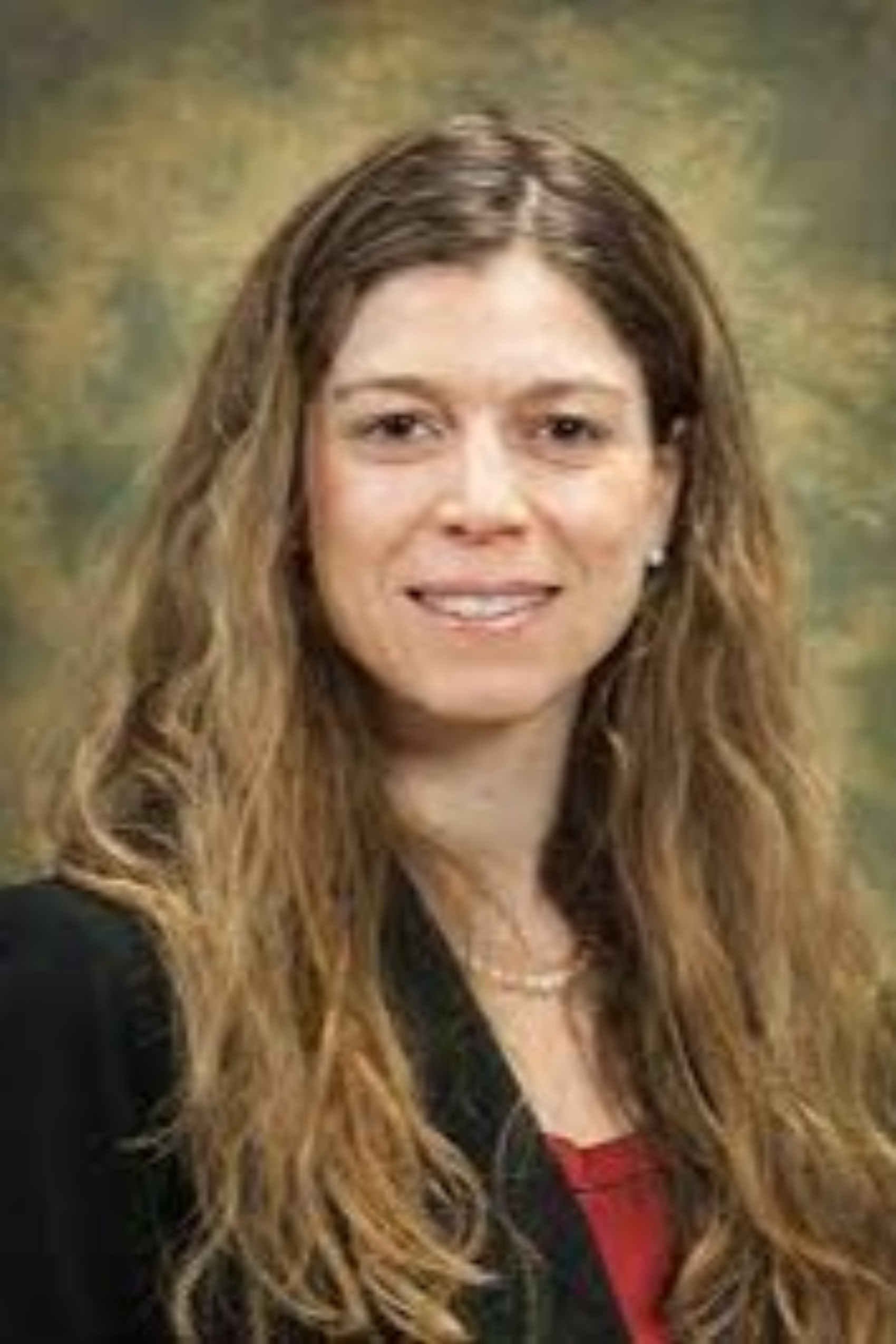Steering committee
 Lisa M. Braddix, M.P.H., is the Chief Health Equity Officer for the Southeastern Michigan Health Association where she works to foster organizational collaboration to improve community health using practical approaches that will eliminate health disparities in marginalized populations throughout southeast Michigan. Lisa has spent several years working in community health and is passionate about issues related to health disparities and health equity. Lisa serves as the Steering Committee Chair for the Center for Health Equity and Community Knowledge in Urban Populations at Wayne State University. She also is the chair of the Michigan Cancer Consortium Health Equity and Policy Committee and a co-chair of the Healthy Pontiac We Can! Coalition. Lisa is a native of Cleveland, Ohio and a graduate of The Ohio State University with a Bachelor of Science Degree in Biological Sciences and has a Master of Public Health Degree from the University of Michigan. She has also earned a graduate certificate in Non-Profit Management from Eastern Michigan University and is currently a doctoral student at Wayne State University studying the Sociology of Health and Illness.
Lisa M. Braddix, M.P.H., is the Chief Health Equity Officer for the Southeastern Michigan Health Association where she works to foster organizational collaboration to improve community health using practical approaches that will eliminate health disparities in marginalized populations throughout southeast Michigan. Lisa has spent several years working in community health and is passionate about issues related to health disparities and health equity. Lisa serves as the Steering Committee Chair for the Center for Health Equity and Community Knowledge in Urban Populations at Wayne State University. She also is the chair of the Michigan Cancer Consortium Health Equity and Policy Committee and a co-chair of the Healthy Pontiac We Can! Coalition. Lisa is a native of Cleveland, Ohio and a graduate of The Ohio State University with a Bachelor of Science Degree in Biological Sciences and has a Master of Public Health Degree from the University of Michigan. She has also earned a graduate certificate in Non-Profit Management from Eastern Michigan University and is currently a doctoral student at Wayne State University studying the Sociology of Health and Illness.
 Maha Albdour, Ph.D., R.N., APHN-BC, is a board-certified advanced public health nurse who earned her Ph.D. in Nursing at Wayne State University in 2017. Her research interest is the health of minority and immigrant adolescents and young adults. She conducted several projects among the Arab American community exploring psychosocial stressors such as childhood adversities (including war, armed conflicts, and community violence experiences), discrimination, acculturative stress, social support, and parent-child relationship influence on physical and mental health of adolescents and young adults. Dr. Albdour has recently concluded a study that examined the effect of past and current multiple stressors and their effects on the Endocrine system (cortisol levels) and health, both mental and physical, of immigrant young adults of Arabic descent. Currently, Dr. Albdour received funding for her study "depression and Metabolic Syndrome (MetS) in Arab-American parentâ€adolescent dyads", which will examine the interaction between parental and adolescent psycho-social stressors and their effects on mental health and cardiovascular disease risk among both parents and their children. The study was funded by WSU-ACCESS initiatives for pilot data supporting community-engaged research. In addition, Dr. Albdour is currently the principal investigator for a study that focuses on medical mistrust among ethnic minority young adults. Dr. Albdour has received the Midwest Nursing Society (MNRS) Adolescents Health Research Interest Group new investigator award to acknowledge her work with minority adolescents
Maha Albdour, Ph.D., R.N., APHN-BC, is a board-certified advanced public health nurse who earned her Ph.D. in Nursing at Wayne State University in 2017. Her research interest is the health of minority and immigrant adolescents and young adults. She conducted several projects among the Arab American community exploring psychosocial stressors such as childhood adversities (including war, armed conflicts, and community violence experiences), discrimination, acculturative stress, social support, and parent-child relationship influence on physical and mental health of adolescents and young adults. Dr. Albdour has recently concluded a study that examined the effect of past and current multiple stressors and their effects on the Endocrine system (cortisol levels) and health, both mental and physical, of immigrant young adults of Arabic descent. Currently, Dr. Albdour received funding for her study "depression and Metabolic Syndrome (MetS) in Arab-American parentâ€adolescent dyads", which will examine the interaction between parental and adolescent psycho-social stressors and their effects on mental health and cardiovascular disease risk among both parents and their children. The study was funded by WSU-ACCESS initiatives for pilot data supporting community-engaged research. In addition, Dr. Albdour is currently the principal investigator for a study that focuses on medical mistrust among ethnic minority young adults. Dr. Albdour has received the Midwest Nursing Society (MNRS) Adolescents Health Research Interest Group new investigator award to acknowledge her work with minority adolescents
 M. Safwan Badr, M.D., M.B.A., is the chair of the Wayne State University School of Medicine Department of Internal Medicine. A professor of Internal Medicine, Physiology and Biomedical Engineering, Dr. Badr is chief of the WSU Division of Pulmonary, Allergy, Critical Care and Sleep Medicine, and a staff physician at the John D. Dingell VA Medical Center. He has mentored numerous trainees and junior faculty members who have launched successful academic careers.
M. Safwan Badr, M.D., M.B.A., is the chair of the Wayne State University School of Medicine Department of Internal Medicine. A professor of Internal Medicine, Physiology and Biomedical Engineering, Dr. Badr is chief of the WSU Division of Pulmonary, Allergy, Critical Care and Sleep Medicine, and a staff physician at the John D. Dingell VA Medical Center. He has mentored numerous trainees and junior faculty members who have launched successful academic careers.
 Winona Bynum, R.D.N., is currently the executive director of the Detroit Food Policy Council, an education, advocacy and policy organization led by Detroiters committed to creating a sustainable, local food system that promotes food security, food justice and food sovereignty in the city of Detroit. Winona is a registered dietitian/nutritionist (RDN) and a graduate of Wayne State University Coordinated Program in Dietetics. Winona studied Public Health at Emory University Rollins School of Public Health. She is the chair of the National Organization of Blacks and Dietetics (NOBIDAN) for the 2021-2022 fiscal year. She served as president-elect/president of the Southeastern Michigan Dietetic Association 2018-2020.
Winona Bynum, R.D.N., is currently the executive director of the Detroit Food Policy Council, an education, advocacy and policy organization led by Detroiters committed to creating a sustainable, local food system that promotes food security, food justice and food sovereignty in the city of Detroit. Winona is a registered dietitian/nutritionist (RDN) and a graduate of Wayne State University Coordinated Program in Dietetics. Winona studied Public Health at Emory University Rollins School of Public Health. She is the chair of the National Organization of Blacks and Dietetics (NOBIDAN) for the 2021-2022 fiscal year. She served as president-elect/president of the Southeastern Michigan Dietetic Association 2018-2020.
 Rochelle Chapman, Rochelle Chapman oversees community engagement at Wayne State University's Institute of Environmental Health Sciences (IEHS), Center for Urban Responses to Environmental Stressors (CURES). CURES holds a P30 designation from the National Institute of Environmental Health Sciences (NIEHS). CURES aims to advance the science of community engagement with research. In addition, Rochelle is the Co-Director of the Faith Community Research Network (FCRN), a collaboration between Wayne State University, Karmanos Cancer Institute, and Faith-Based Genetics Research Institute. FCRN aims to educate, empower, and elevate populations primarily composed of people of color, on the benefits of being engaged in medical research. Rochelle is devoted to serving her community as Senior Pastor of New Beginnings Bible Church in Detroit, MI in the same area she was raised in. She received her bachelor’s degree in psychology from Wayne State University and attended Columbia Theological Seminary. Currently, Rochelle is a master’s in public health student at Wayne State University School of Medicine.
Rochelle Chapman, Rochelle Chapman oversees community engagement at Wayne State University's Institute of Environmental Health Sciences (IEHS), Center for Urban Responses to Environmental Stressors (CURES). CURES holds a P30 designation from the National Institute of Environmental Health Sciences (NIEHS). CURES aims to advance the science of community engagement with research. In addition, Rochelle is the Co-Director of the Faith Community Research Network (FCRN), a collaboration between Wayne State University, Karmanos Cancer Institute, and Faith-Based Genetics Research Institute. FCRN aims to educate, empower, and elevate populations primarily composed of people of color, on the benefits of being engaged in medical research. Rochelle is devoted to serving her community as Senior Pastor of New Beginnings Bible Church in Detroit, MI in the same area she was raised in. She received her bachelor’s degree in psychology from Wayne State University and attended Columbia Theological Seminary. Currently, Rochelle is a master’s in public health student at Wayne State University School of Medicine.
 Stacie Clayton, M.B.A., a native Detroiter and two-time alumna of Wayne State University, joined the Wayne State University Government and Community Affairs team as Director of Community Affairs in May 2021. In this position, Stacie promotes the urban mission of the University by working with internal and external stakeholders. This includes strategically extending University resources to the community so that Wayne State continues to have a significant impact on the cultural, economic and social life of southeastern Michigan.
Stacie Clayton, M.B.A., a native Detroiter and two-time alumna of Wayne State University, joined the Wayne State University Government and Community Affairs team as Director of Community Affairs in May 2021. In this position, Stacie promotes the urban mission of the University by working with internal and external stakeholders. This includes strategically extending University resources to the community so that Wayne State continues to have a significant impact on the cultural, economic and social life of southeastern Michigan.
 Rhonda Dailey, M.D., is an Assistant Professor of Research in the Department of Family Medicine and Public Health Sciences (DFMPHS) in the School of Medicine and Scientific Director to the Office of Community Engaged Research (OCEnR), within the Office of the Vice President of Research, at Wayne State University. Formally trained in medicine, Dr. Dailey has over 20 years of experience in behavioral and health-disparities research and expertise in the recruitment and retention of minority populations and the engagement of medical professionals and community stakeholders in research. Her research work includes projects focused on community engaged research, perinatal health, health equity and disparities related to chronic disease (particularly asthma and hypertension), patient attitudes and beliefs about health, and healthcare quality.
Rhonda Dailey, M.D., is an Assistant Professor of Research in the Department of Family Medicine and Public Health Sciences (DFMPHS) in the School of Medicine and Scientific Director to the Office of Community Engaged Research (OCEnR), within the Office of the Vice President of Research, at Wayne State University. Formally trained in medicine, Dr. Dailey has over 20 years of experience in behavioral and health-disparities research and expertise in the recruitment and retention of minority populations and the engagement of medical professionals and community stakeholders in research. Her research work includes projects focused on community engaged research, perinatal health, health equity and disparities related to chronic disease (particularly asthma and hypertension), patient attitudes and beliefs about health, and healthcare quality.
 Bethany Foster, MPH, is the program manager of The Population Health OutcomEs aNd Information EXchange (PHOENIX) program which integrates clinical information from electronic health records with social determinants of health data to identify biological risk factor (e.g., blood pressure, hemoglobin A1c) and chronic disease. The pooled data is used to enhance population level health surveillance and proactively identify areas with excessive risk factor and chronic disease burdens, with a goal of enabling targeted community programs that focus on upstream contributors by facilitating stronger partnerships that focus on common data-driven goals to increase health equity in and around Detroit.
Bethany Foster, MPH, is the program manager of The Population Health OutcomEs aNd Information EXchange (PHOENIX) program which integrates clinical information from electronic health records with social determinants of health data to identify biological risk factor (e.g., blood pressure, hemoglobin A1c) and chronic disease. The pooled data is used to enhance population level health surveillance and proactively identify areas with excessive risk factor and chronic disease burdens, with a goal of enabling targeted community programs that focus on upstream contributors by facilitating stronger partnerships that focus on common data-driven goals to increase health equity in and around Detroit.
 Waymond Hayes, Ph.D. (c), is the Director of Early Learning/Youth Development at Focus: HOPE. With over 24 years of experience in the field working with families, Waymond credits deep family involvement in Early Childhood Education as his source of motivation.
Waymond Hayes, Ph.D. (c), is the Director of Early Learning/Youth Development at Focus: HOPE. With over 24 years of experience in the field working with families, Waymond credits deep family involvement in Early Childhood Education as his source of motivation.
 Hilary Marusek, PhD, is an Assistant Professor in the Department of Psychiatry and Behavioral Neurosciences at Wayne State University (WSU) School of Medicine. Dr. Marusak directs the WSU THINK Lab, which focuses on pediatric anxiety, understanding the impact of childhood trauma/adversity on neural development, and using that knowledge to improve interventions that can enhance mental health in pediatric populations
Hilary Marusek, PhD, is an Assistant Professor in the Department of Psychiatry and Behavioral Neurosciences at Wayne State University (WSU) School of Medicine. Dr. Marusak directs the WSU THINK Lab, which focuses on pediatric anxiety, understanding the impact of childhood trauma/adversity on neural development, and using that knowledge to improve interventions that can enhance mental health in pediatric populations
 Chandra McMillion, is the CEO and founder of the McMillion Group. The McMillion Group is a full-service strategy consulting, project leadership and implementation support firm specializing in organizational development, leadership and board development, community change and social justice. The Detroit 21 is one of our key clients and we are representing the interests of this collaborative of Executive Directors from community development organizations from across Detroit.
Chandra McMillion, is the CEO and founder of the McMillion Group. The McMillion Group is a full-service strategy consulting, project leadership and implementation support firm specializing in organizational development, leadership and board development, community change and social justice. The Detroit 21 is one of our key clients and we are representing the interests of this collaborative of Executive Directors from community development organizations from across Detroit.
 Elizabeth Towner, Ph.D., is an Assistant Professor within the Department of Family Medicine and Public Health Sciences, Division of Behavioral Sciences at the Wayne State University School of Medicine. Her research focuses broadly on pediatric obesity, health equity, and developing family-based health behavioral interventions. Her recent work includes partnerships with the Michigan Special Supplemental Nutrition Program for Women, Infants, and Children (WIC) to develop preschool obesity interventions, interdisciplinary collaborations to develop innovative approaches for increasing the efficiency and consistency of screening for pediatric obesity in primary care settings, and identifying food purchasing patterns, resource management skills, and routines that increase obesity risk among low-income families with preschool-aged children.
Elizabeth Towner, Ph.D., is an Assistant Professor within the Department of Family Medicine and Public Health Sciences, Division of Behavioral Sciences at the Wayne State University School of Medicine. Her research focuses broadly on pediatric obesity, health equity, and developing family-based health behavioral interventions. Her recent work includes partnerships with the Michigan Special Supplemental Nutrition Program for Women, Infants, and Children (WIC) to develop preschool obesity interventions, interdisciplinary collaborations to develop innovative approaches for increasing the efficiency and consistency of screening for pediatric obesity in primary care settings, and identifying food purchasing patterns, resource management skills, and routines that increase obesity risk among low-income families with preschool-aged children.